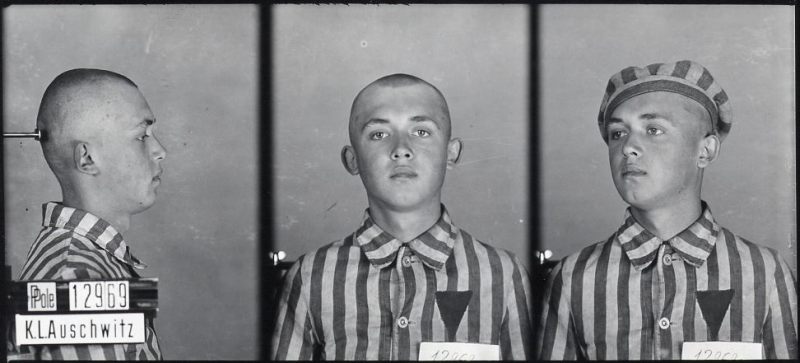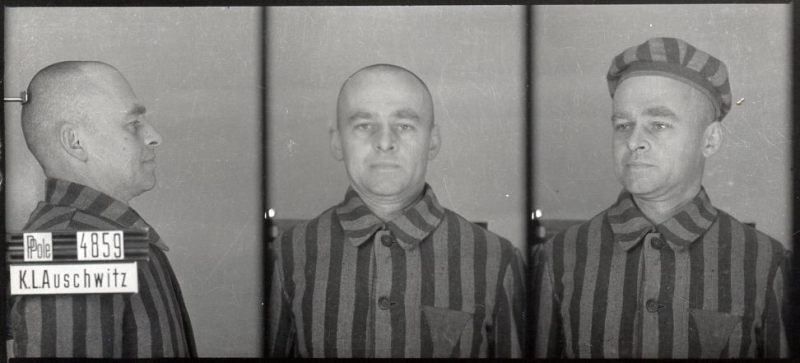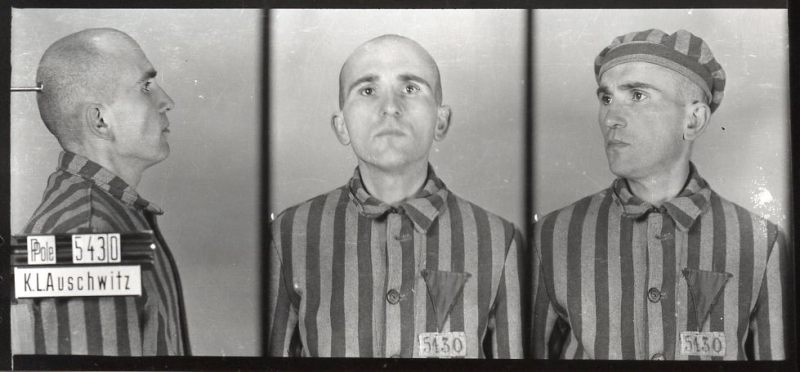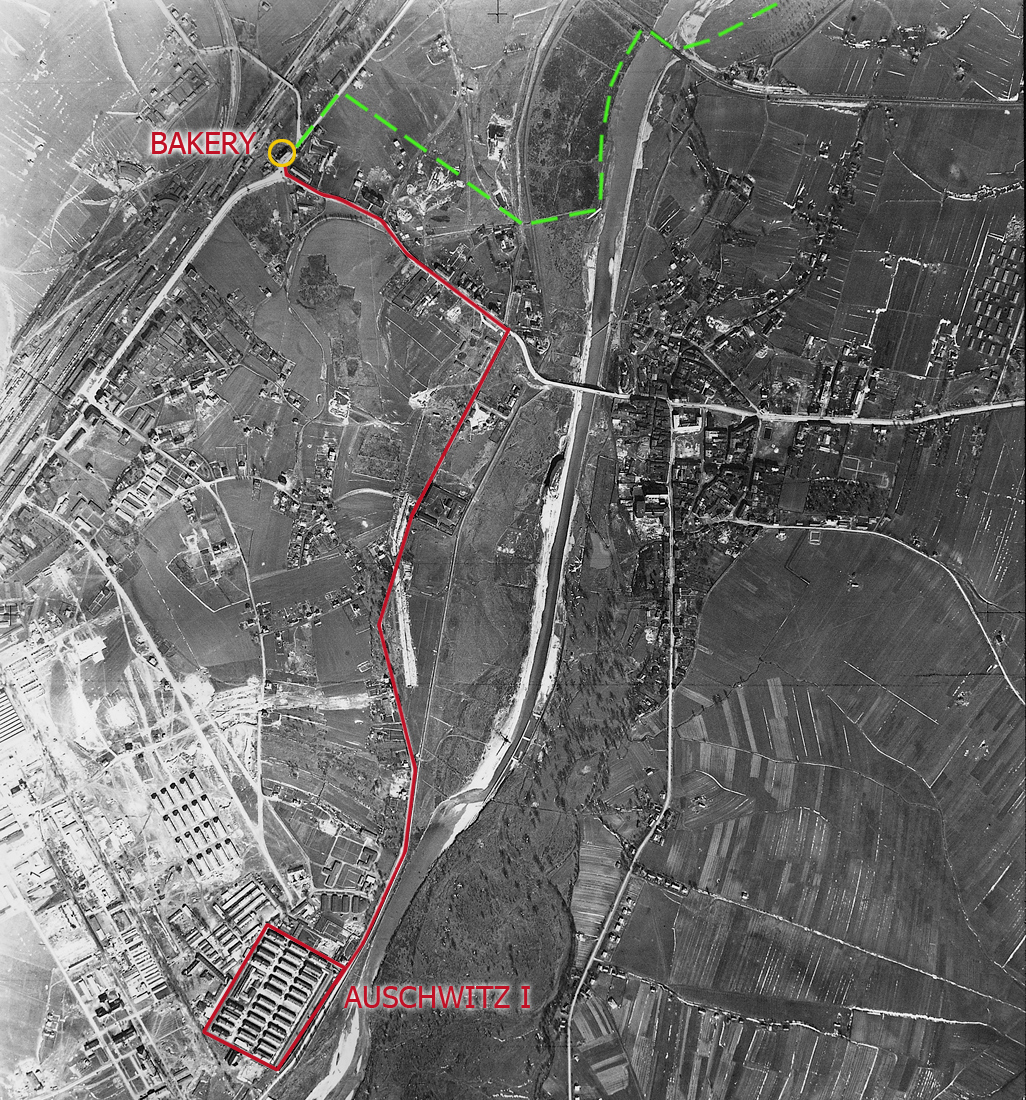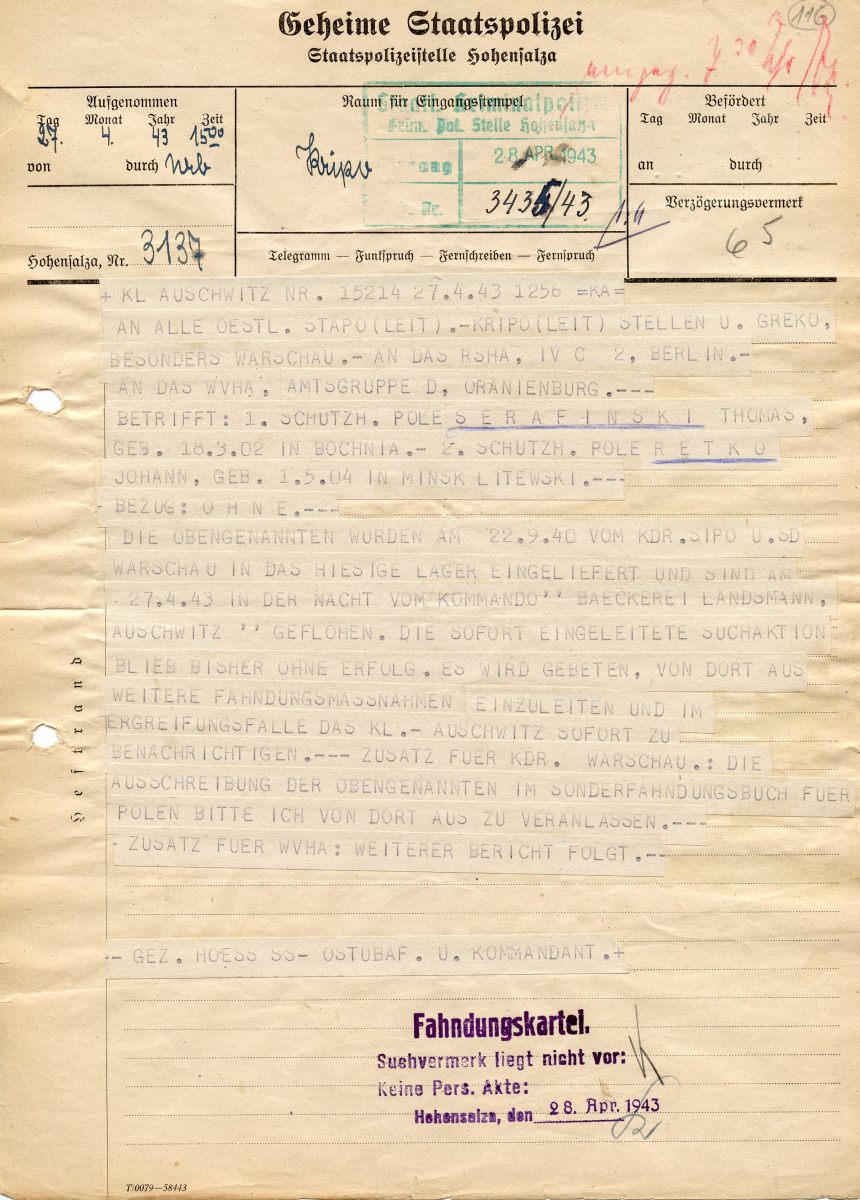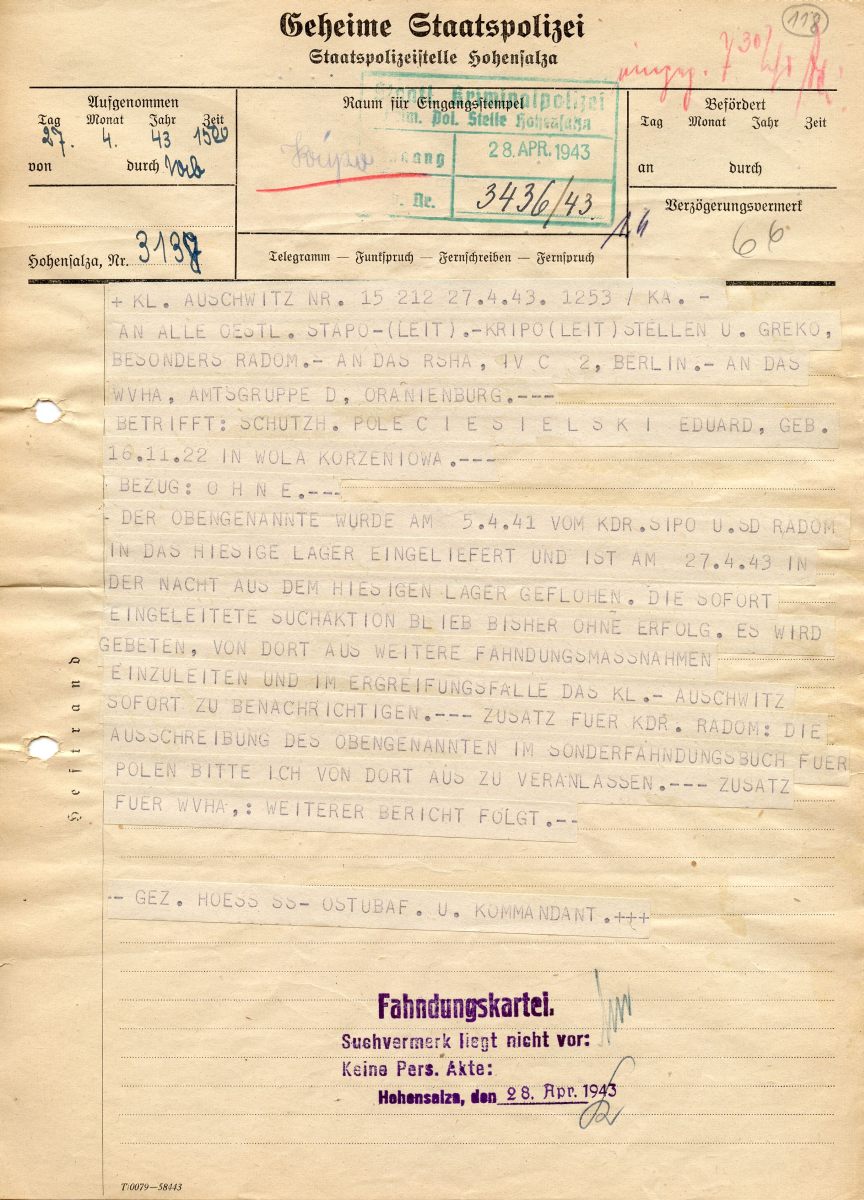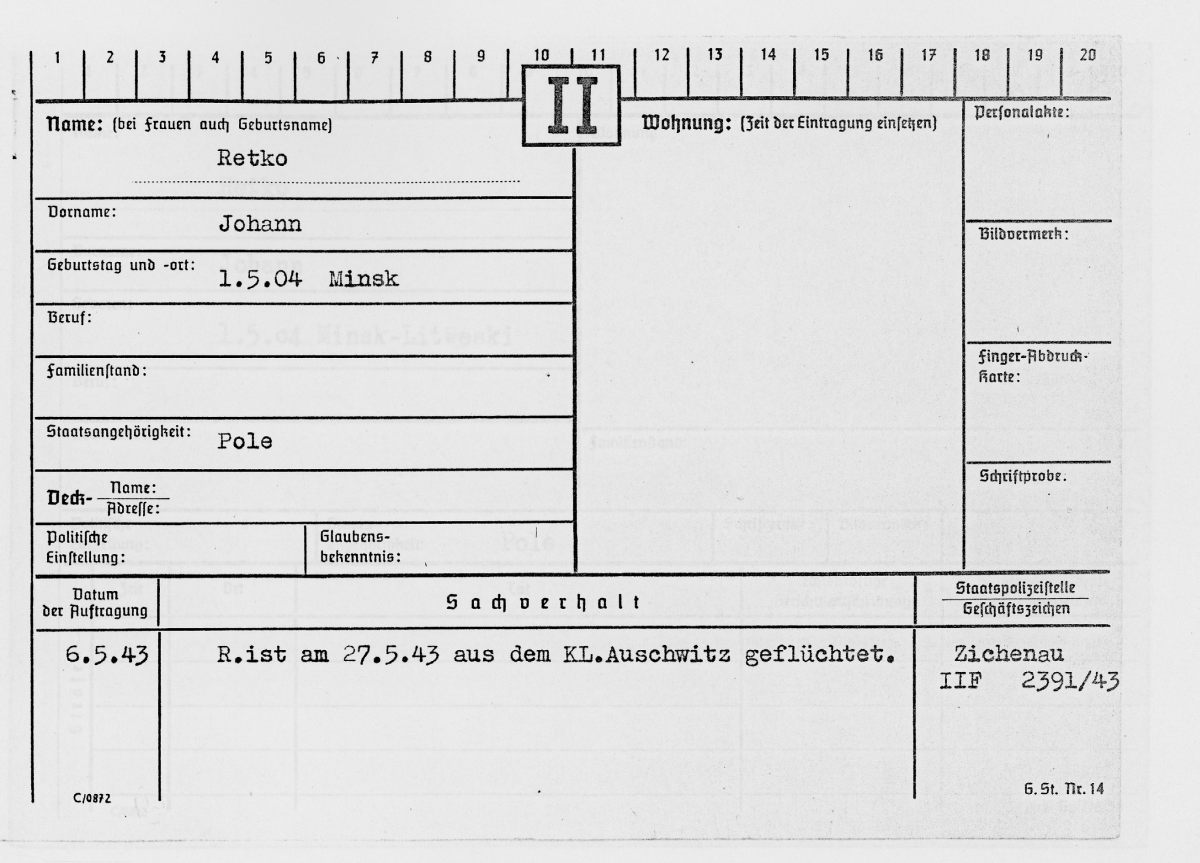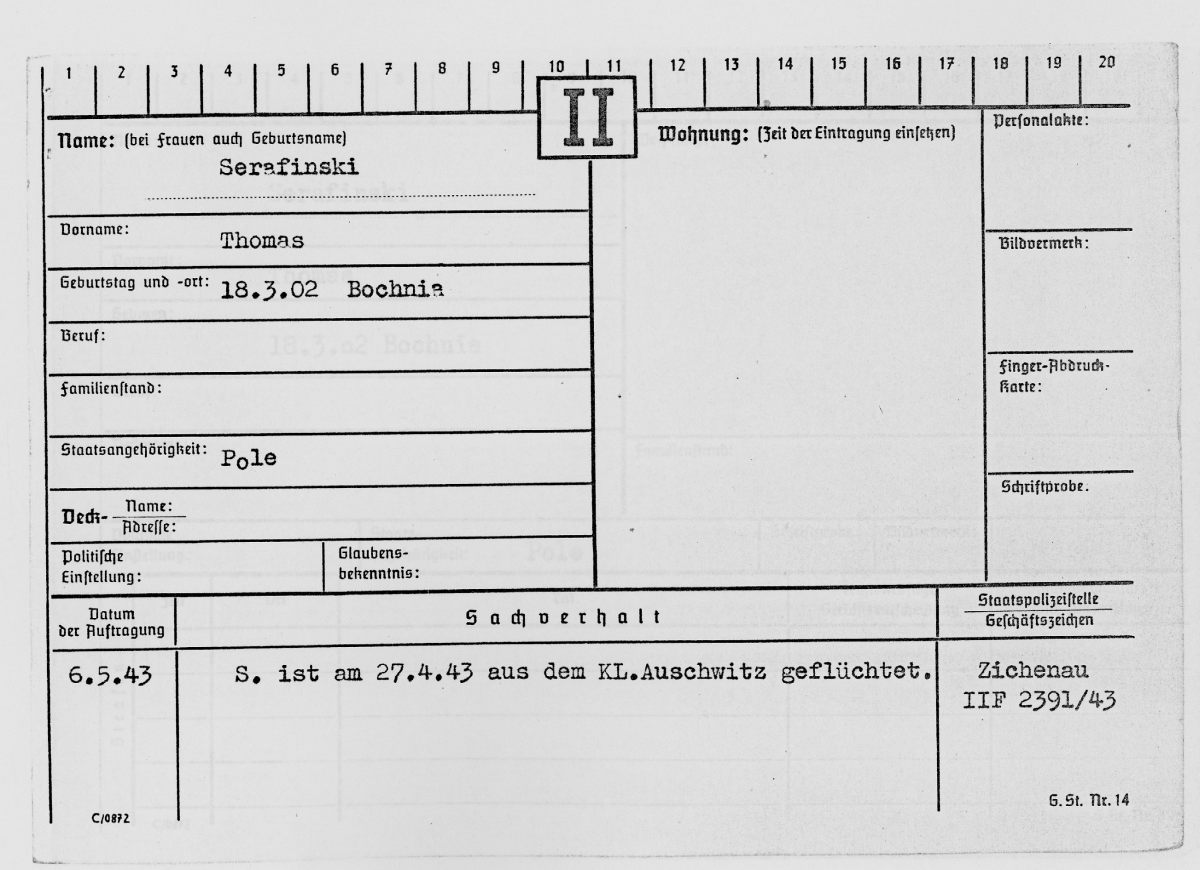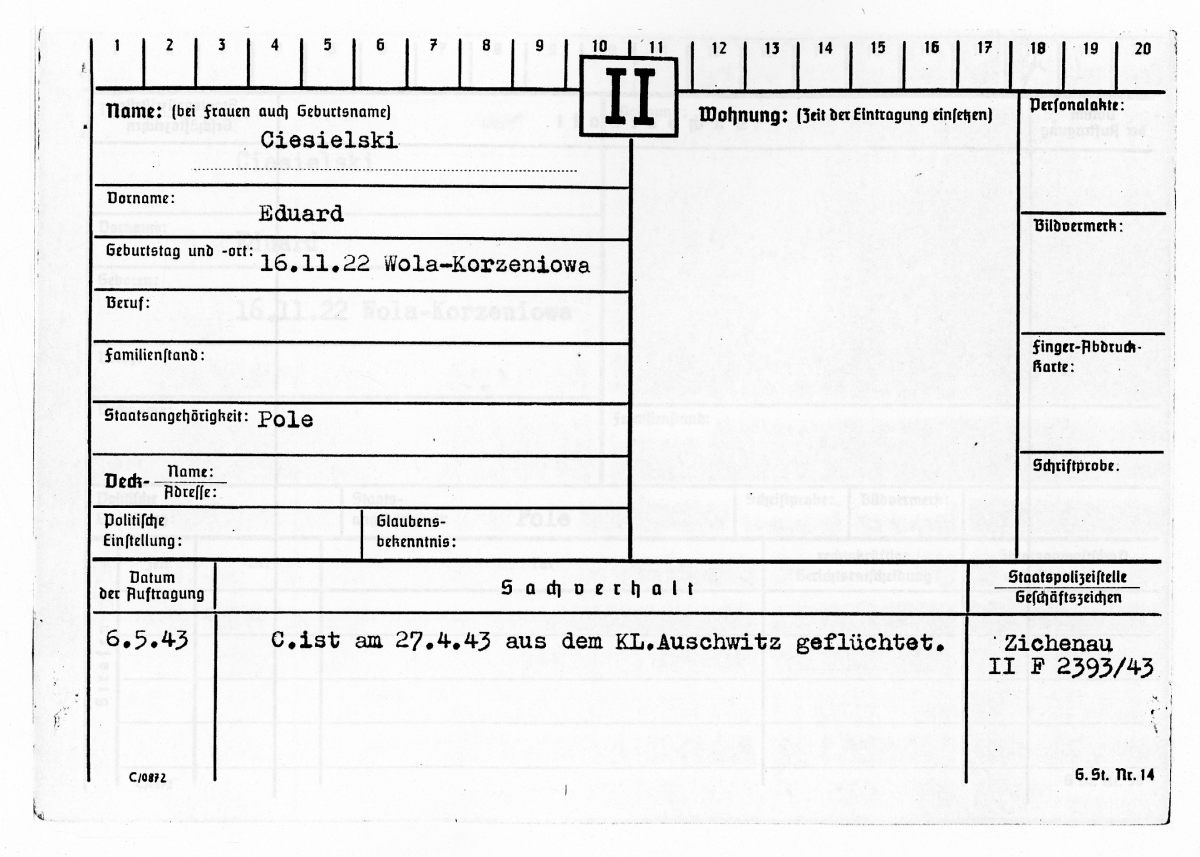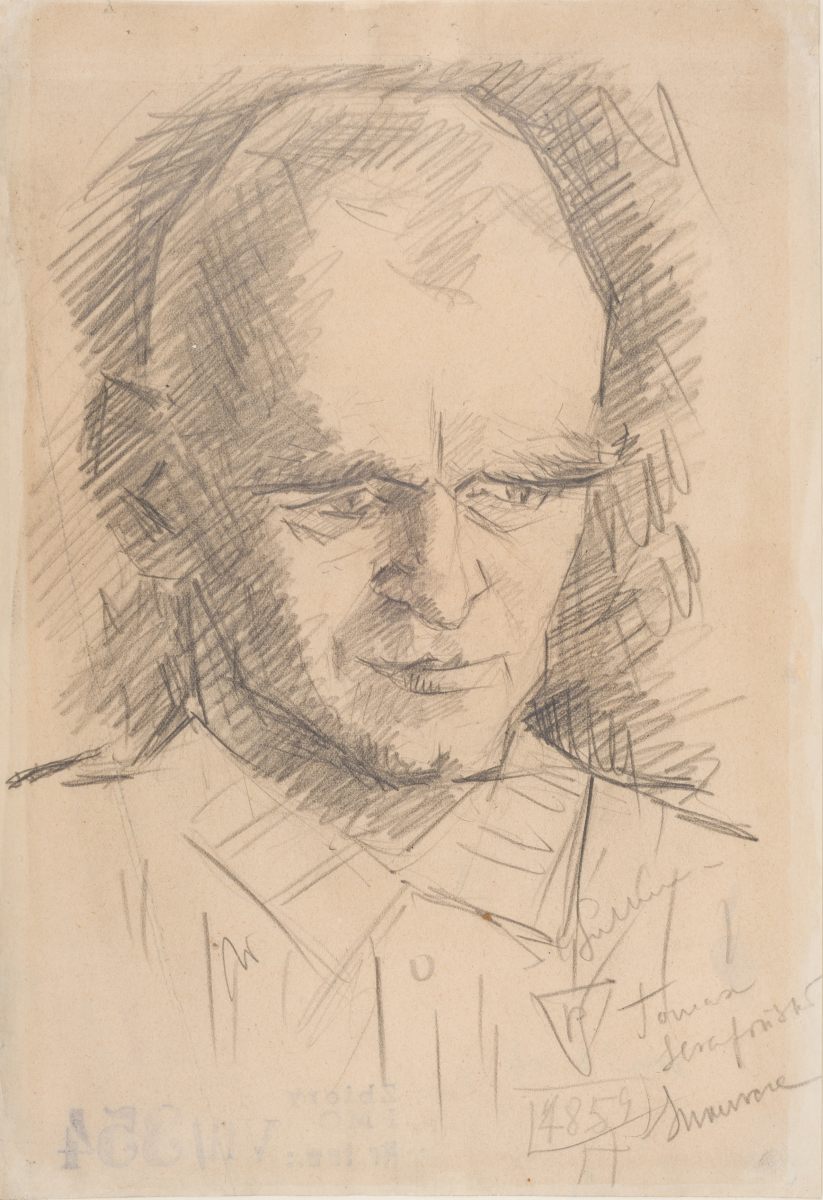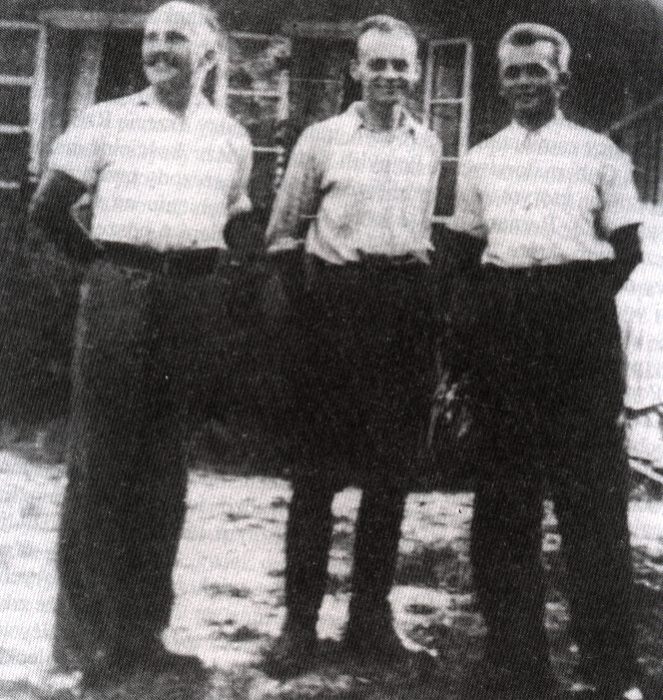In the spring of 1943 Witold Pilecki, sensing the threat of exposure and intending to personally submit a report about the situation in the camp, decided to escape. For this purpose, he got transferred to the Kommando employed in the bakery, situated outside the main camp (about 2 km north). Two other prisoners with whom he intended to escape, Edward Ciesielski and Jan Redzej, also got transferred to the same Kommando.
The escape took place at night, on 26/27 April 1943 directly from the bakery premises. During work, the prisoners managed to cut telephone and alarm ring wires, opened the door with a bump key and moved away bolts locking the door. A continuation they left the building immediately, barricaded the exit from the outside and ran towards east. That night they also managed to cross the Soła river, swam across the Vistula river and reached nearby forest in a boat found by accident. After the entire day of rest they carried on the march and finally crossed the border of the General Government. After a few days, they got to Nowy Wiśnicz near Bochnia, where they established contact with the regional Headquarters of the Home Army. Pilecki suggested the creation of a unit which would attack the SS garrison in Auschwitz and liberate the prisoners. However, the command of the Home Army expressed a negative opinion, considering the suggestion as not realistic enough. In August 1943 Pilecki visited Warsaw, where in the Headquarters of the Home Army he presented a report about the underground activity and the situation of prisoners in the camp. Soon after Redzej and Ciesielski arrived at Warsaw as well. All three of them got engaged in the clandestine activity and in 1944 fought in the Warsaw Uprising. Redzej perished during the Uprising, but the rest survived the war. However, they were sentenced by the Communist government in Poland to death. Pilecki was executed in 1948, while for Ciesielski, his sentence was commuted into life imprisonment and then into 15 years.

